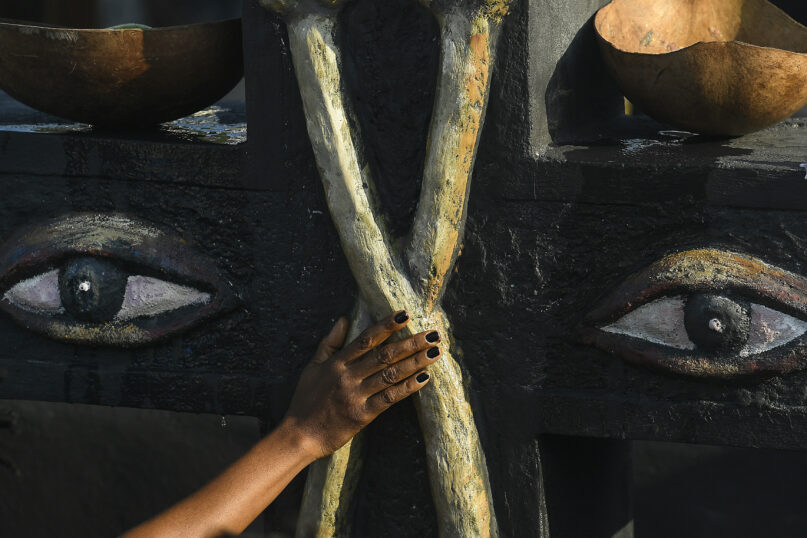PORT-AU-PRINCE, Haiti (AP) — Hundreds of revelers clad in white and clutching candles crowded into the main cemetery at Haiti’s capital on Monday to pay their respects to the dead during an annual Vodou festival.
Many in the crowd surrounded the tomb of the first person buried in the Port-au-Prince cemetery, believing it contains the guardian of the dead, known in Haitian Vodou as Baron Samedi.
“I’m going to continue believing in Baron Samedi. He is my leader because this country has no leader,” said Emmanuel Jean-Pierre, a Vodou priest who walked several hours to reach the cemetery because he could not afford public transportation.
The celebration comes at a time of deepening misery and violence for Haiti, which is struggling to recover from the July 7 assassination of President Jovenel Moïse and a 7.2 magnitude earthquake that struck southwest Haiti in mid-August and killed more than 2,200 people. The country also is facing a severe fuel shortage, a rise in the cost of basic goods and a spike in gang-related kidnappings. Officials announced on Monday that a university professor who was recently abducted had been killed and U.S. and Haitian authorities are trying to recover 17 members of a U.S. religious organization who were kidnapped more than two weeks ago in an unrelated case.
Revelers offered candles and money to a Vodou priest dressed in black and wearing a white hat who stood upon the tomb as he carved a cross into the candles with his fingernail and murmured something under his breath before giving them back.
One man standing near the priest whispered, “If you get me a job this year, next year I’ll bring you more.”
Nearby, people filled wooden bowls with plantains, fish, bread, avocados and anything else they thought their dead relatives or friends might appreciate. They also poured black coffee into the ground as an offering.
Some even requested that the deceased share upcoming winning lottery numbers in their sleep. Others carried jugs of a moonshine rum known as cleren with hot peppers marinating inside.
Vodou is an official and widely practiced religion in Haiti, where it is practiced widely in the country of more than 11 million people. It was born in the 16th century when slaves from West Africa who were forced to practice Catholicism combined the saints with spirits in African religions.





